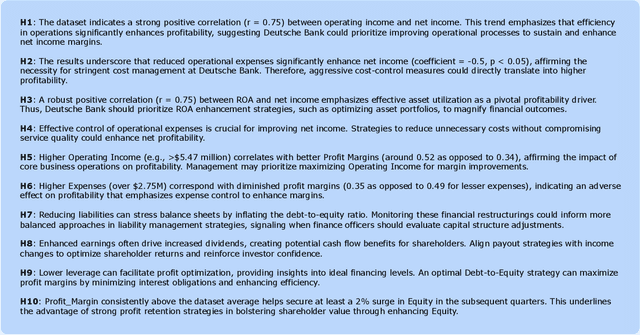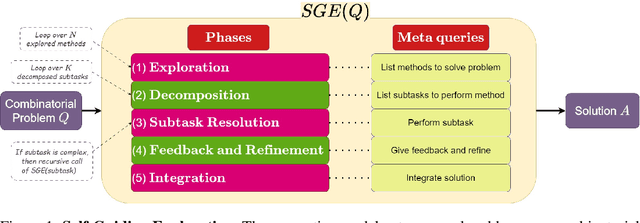Farkhad Akimov
The AI Data Scientist
Aug 25, 2025
Abstract:Imagine decision-makers uploading data and, within minutes, receiving clear, actionable insights delivered straight to their fingertips. That is the promise of the AI Data Scientist, an autonomous Agent powered by large language models (LLMs) that closes the gap between evidence and action. Rather than simply writing code or responding to prompts, it reasons through questions, tests ideas, and delivers end-to-end insights at a pace far beyond traditional workflows. Guided by the scientific tenet of the hypothesis, this Agent uncovers explanatory patterns in data, evaluates their statistical significance, and uses them to inform predictive modeling. It then translates these results into recommendations that are both rigorous and accessible. At the core of the AI Data Scientist is a team of specialized LLM Subagents, each responsible for a distinct task such as data cleaning, statistical testing, validation, and plain-language communication. These Subagents write their own code, reason about causality, and identify when additional data is needed to support sound conclusions. Together, they achieve in minutes what might otherwise take days or weeks, enabling a new kind of interaction that makes deep data science both accessible and actionable.
Self-Guiding Exploration for Combinatorial Problems
May 28, 2024



Abstract:Large Language Models (LLMs) have become pivotal in addressing reasoning tasks across diverse domains, including arithmetic, commonsense, and symbolic reasoning. They utilize prompting techniques such as Exploration-of-Thought, Decomposition, and Refinement to effectively navigate and solve intricate tasks. Despite these advancements, the application of LLMs to Combinatorial Problems (CPs), known for their NP-hardness and critical roles in logistics and resource management remains underexplored. To address this gap, we introduce a novel prompting strategy: Self-Guiding Exploration (SGE), designed to enhance the performance of solving CPs. SGE operates autonomously, generating multiple thought trajectories for each CP task. It then breaks these trajectories down into actionable subtasks, executes them sequentially, and refines the results to ensure optimal outcomes. We present our research as the first to apply LLMs to a broad range of CPs and demonstrate that SGE outperforms existing prompting strategies by over 27.84% in CP optimization performance. Additionally, SGE achieves a 2.46% higher accuracy over the best existing results in other reasoning tasks (arithmetic, commonsense, and symbolic).
 Add to Chrome
Add to Chrome Add to Firefox
Add to Firefox Add to Edge
Add to Edge